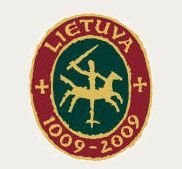I haven't seen School of One, any of the software, etc., and I have no idea if it actually works at all, but I did talk to the people at Wireless Generation about it, and at least think I have a better idea of what they have in mind beyond a nouveau invididualized learning system.
Let's jump to an entirely different style of individualized instruction, the reading and writing workshop. Pulling down our copy of In the Middle, from p. 151:
Where do minilesson topics come from? Most often from my analysis of what students need to know next, based on what's happening in their writing and reading, and from my experience of the kinds of information needed by this age group. Here is another instance when records of individuals' writing and reading activity come in handy, in pointing me toward lessons that address what's happening, or not happening, within the group. I keep an index card tucked into a flap in my lesson plan book, for jotting down ideas for minilessons that occur to me as I read pieces of kids' writing or respond to their letters about their reading. For example, when all their poetry rhymes, when no one in the group has read any Robert Cormier, I'll make a not to myself to plan minilessons about capitals on first, last and important words in a title, about what else poems do besides rhyme, about The Chocolate War.
NYC disclaimer: I don't know anything about how reading and writing workshop was implemented in NYC and the particulars aren't particularly relevant to my larger point here...
In the School of One early middle grade math program, the default state is (as I understand it) working on online activities that allow the ongoing realtime aggregation of detailed data about achievement. This is particularly easy in math as long as you define the discipline as being more or less linear and procedural, as we traditionally do.
So overnight, rather than Nancie Atwell shuffling through her file cards and memory, the software running this thing can look at all the kids scores and characteristics and decide, say, there are 12 kids who could use a mini-lesson on dividing fractions. Perhaps one with manipulatives that best suits their learning styles, or perhaps if they're stuck on the topic just a different approach that might help. And over time the system might see which teachers in the group do which lessons best. So then the system schedules a mini-lesson (or maxi-lesson, or activity) for tomorrow with the appropriate teachers and students.
So... this is somewhat interesting. OTOH, expert systems in general have been a big letdown for forty years, and Edison has been working on it since 1992, with limited results at best. The burden of proof is most decidedly on School of One, particularly to show this makes sense within a whole school.
I do know from my limited middle school experience that being able to put the rest of the class on computers while your're working with a small group or individual student is a very good thing from a management point of view, and on that simple level alone this process may be appealing to teachers.








